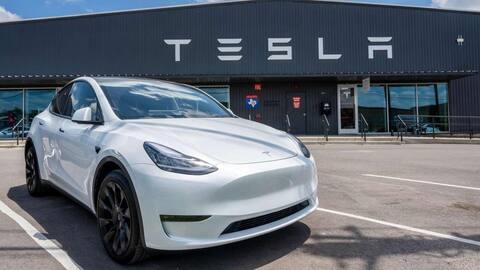"Suzuki moment" for India's EV industry! Tesla will invest $30 billion in India over the next 5 years.
13 Jan 2024 15:43:15
It is indeed major boost to the Make in India, the Elon Musk-led Tesla is in advanced talks to invest $30 billion in India's electric vehicle (EV) sector over the next five years.
This includes a $3 billion direct investment for a new small car production from an Indian plant, $10 billion from other partners in the manufacturing ecosystem, and a cumulative $15 billion in the battery industry ecosystem. "If it works out, this will be the biggest foreign direct investment commitment in India," an insider said.

Initially, the Musk-led Tesla plans to introduce "a limited number of its standard brands" to compete in India's luxury car market. It would also invest in a factory in India to produce a new small car for the developing countries. The car's pricing structure is yet to be determined, but it is expected to cater to the needs of countries in Asia, Latin America, and Africa.
The factory might partially serve the Indian EV market and focus substantially on exports.
Tesla has not officially disclosed its detailed intentions for the Indian market.Moreover, a senior official from the Indian government's economic ministry refrained from directly addressing the EV maker's case.However, they stated, "India is contemplating offering incentives to all participants in the electric vehicle (EV) sector. No particular company-specific incentives will be granted in any sector."
NEWS OF THE DAY
— News Arena India (@NewsArenaIndia) January 13, 2024
Elon Musk’s Tesla will invest $30 billion in India over the next 5 years. As per he is admirer of PM Modi & that’s why he is ready to commit huge investment. pic.twitter.com/6vRv7H2skR
This suggests that the possibility of import duty concessions, as part of a broader policy framework, is still under consideration.
Tesla's strategies for entering the Indian market are aligned with its broader diversification efforts, extending beyond its focus on China.In India, Tesla is reportedly exploring potential locations for its manufacturing plant, with Haryana, Tamil Nadu, Maharashtra, and Gujarat under consideration. Considering the emphasis on exportation in its ambitious plans, it is probable that, should Tesla decide to invest, it might choose a coastal state in the western or southern regions of India.
Tesla's manufacturing module relies on a high degree of local content.Notably, in its Berlin factory, the local content in EVs is higher than in German marque Mercedes, while in Shanghai, the localization is 95%. Based on its record of setting up a plant within two years in Germany and one year in China, Tesla might roll out its first small car in India in two years and build the entire factory within three years.
.
.